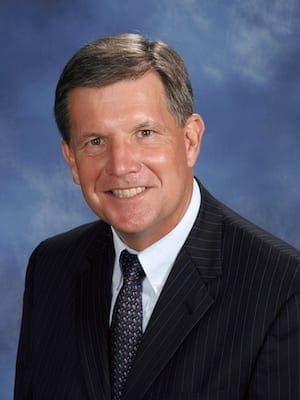I observed our congregation’s students standing attentively as they enthusiastically declared, “I pledge allegiance to the flag of the United States of America” during Vacation Bible School.
We often recite these words in classrooms and at civic gatherings. When we pronounce the pledge, is it merely an obligatory ritual or do we listen attentively to all of the words and take them seriously?
The last words of the pledge are perhaps some of the most countercultural words of commitment we can speak: “with liberty and justice for all.”
Our ancestors envisioned a nation wherein liberty and justice would be for all people.
For some, however, “liberty” has been reduced to a license for self-centeredness and “justice” has been diminished to mere retaliatory or punitive action.
Although dictionaries routinely define liberty as “the state of being free,” liberty involves much more.
The historical American concept of liberty is not that one is free to do as one pleases without accountability for the consequences of one’s actions.
Rather, our heritage of liberty means that we are not owned or enslaved by another person or power.
Popular pastor and author John Ortberg reminds us, “Real freedom is not the external freedom to gratify every appetite; it is the internal freedom not to be enslaved by our appetites.”
In other words, our individual and corporate freedom exists within the boundaries of ethical and moral responsibility.
True liberty calls on us to express ourselves with civility and to respect the rights of those who think differently to do the same.
Justice is commonly perceived as “the assignment of merited rewards or punishment.”
But the Old Testament prophets, especially Amos, knew that justice is much more than being affirmed for right behavior or punished for bad behavior.
Justice strives to create viable opportunities for all persons to succeed economically, vocationally and socially. Real justice seeks to create opportunities for the disadvantaged.
The Bible gives us many examples of the disadvantaged: the poor, widows, orphans, the sick, strangers, the hungry, the homeless and those in prison.
In the U.S. Pledge of Allegiance, we commit our lives to the pursuit of “liberty and justice for all.”
The phrase “for all” is inclusive, not discriminatory. “For all” means we aim to provide and protect liberty and justice for all individuals regardless of gender, race, economic status, political ideology or religious background.
To preserve liberty and justice for the privileged few is indicative of a shallow theology and an uninformed patriotism.
While you and I are blessed to enjoy the privileges of freedom, many around our world still live under tyranny and can only dream of liberty and justice.
Last weekend’s July 4 festivities should serve as a reminder that we must pledge ourselves to continue to work for liberty and justice for all persons in the future.
Liberty and justice are not just political ideals. They are social tenets that affirm intrinsic human worth, and spiritual values that reflect the image of our Creator, ultimately experienced through the liberty we find in Christ.
John 8:32 declares, “You will know the truth and the truth will set you free,” and Amos 5:24 urges, “Let justice roll on like a river.”
In order to truly “let freedom ring,” we must work together to “let justice roll.”
 Barry Howard is senior minister at First Baptist Church in Pensacola, Florida. A version of this article first appeared on his blog, Barry’s Notes, and is used with permission. You can follow him on Twitter @BarrysNotes.
Barry Howard is senior minister at First Baptist Church in Pensacola, Florida. A version of this article first appeared on his blog, Barry’s Notes, and is used with permission. You can follow him on Twitter @BarrysNotes.
Pastor at the Wieuca Road Baptist Church in Atlanta. He also serves as a leadership coach and columnist for the Center for Healthy Churches. He and his wife, Amanda, live in Brookhaven, Georgia.

